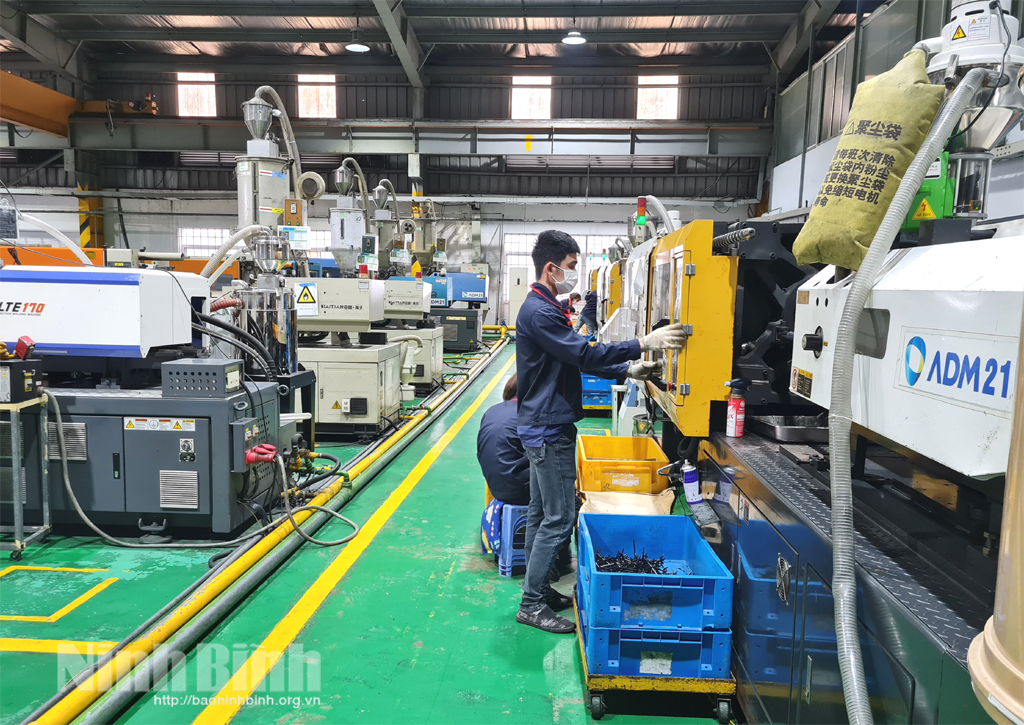Ninh Binh's industrial production sees growth in Q1

According to a report of the provincial Statistics Office, in the first three months, the province's industrial production value was estimated at over 21.8 trillion VND (953 million USD), up 1.4 percent against the same period last year.
Key industrial products enjoyed high growth, including canned pineapples (up 33.5 percent); embroidery products (2.7-fold rise); garments (up 7.9 percent); fertilizer (up 87.3 percent); float glass (up 12.9 percent); and camera modules (up 42.4 percent).
Meanwhile, some others witnessed declines in output such as canned corn (down 22.3 percent); cattle food (down 33 percent), footwear (down 9.3 percent), and electronic components (down 18.1 percent).
Though industrial production saw slight growth in the first quarter, many local enterprises still faced numeorous difficulties. The reasons were the low demand of the domestic market; high competitiveness among domestic commodities; financial issues; lack of materials and low demand of the international market; labour shortages and high loan interest rates.
In order to maintain the industry sector's growth trend in the coming time, Director of the Department of Industry and Trade Hoang Trung Kien said that the Government, the Ministry of Industry and Trade, and the Ministry of Finance have accelerated the implementation of some key solutions to support industrial production such as stablising fuel prices; ensuring the circulation of commodities; expanding export markets; and cutting export tax and fees for firms.
At the same time, Ninh Binh has also implemented policies to assist employees and employers who suffered great impacts of the COVID-19 pandemic.
In addition, the industry and trade sector will pay more heed to managing approved plans and projects; and improving the business climate. Provincial authorities have also encouraged enterprises to invest in technology and renovate their production procedures to increase the labour productivity.
The sector has assisted firms to expand markets, connect supply and demand and develop e-commerce, he added.
It has regularly provided local firms with information about markets, commodities, regulations, and barriers of export markets. The industry and trade sector has continued cooperating with the tax and customs sectors to provide favourable conditions for businesses in transport and purchase of materials serving processing activities.
Translated by Nguyen Thuy


